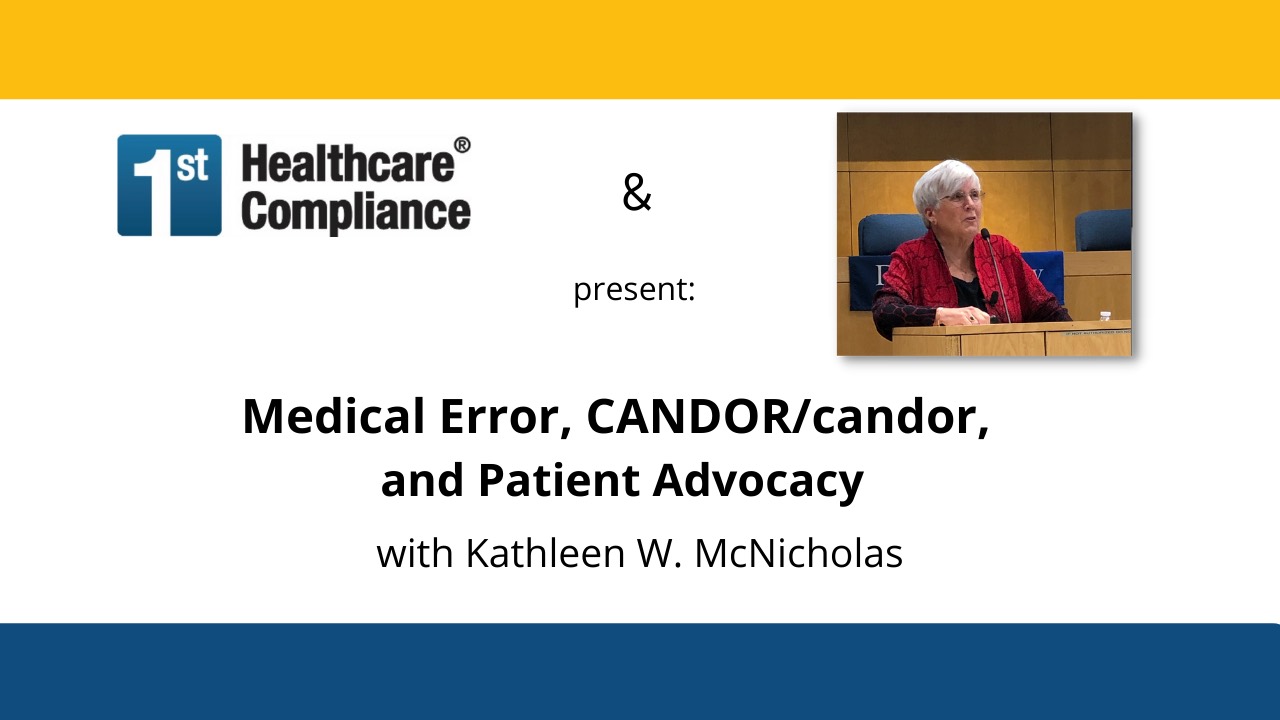
Medical Error, CANDOR/candor, and Patient Advocacy
Kathleen W. McNicholas, MD, JD, CHC, CCEP, Consultant and Patient Advocate with Medical Legal Patient Advocacy Inc. will lead this webinar to review medical error and provide an approach to harmed patients. The CANDOR program of Communication and Optimal Resolution will be explained. CANDOR is well established and has been successfully adopted by many medical centers. Without CANDOR in place, patients may benefit from the use of the principles and the help of a board-certified patient advocate.
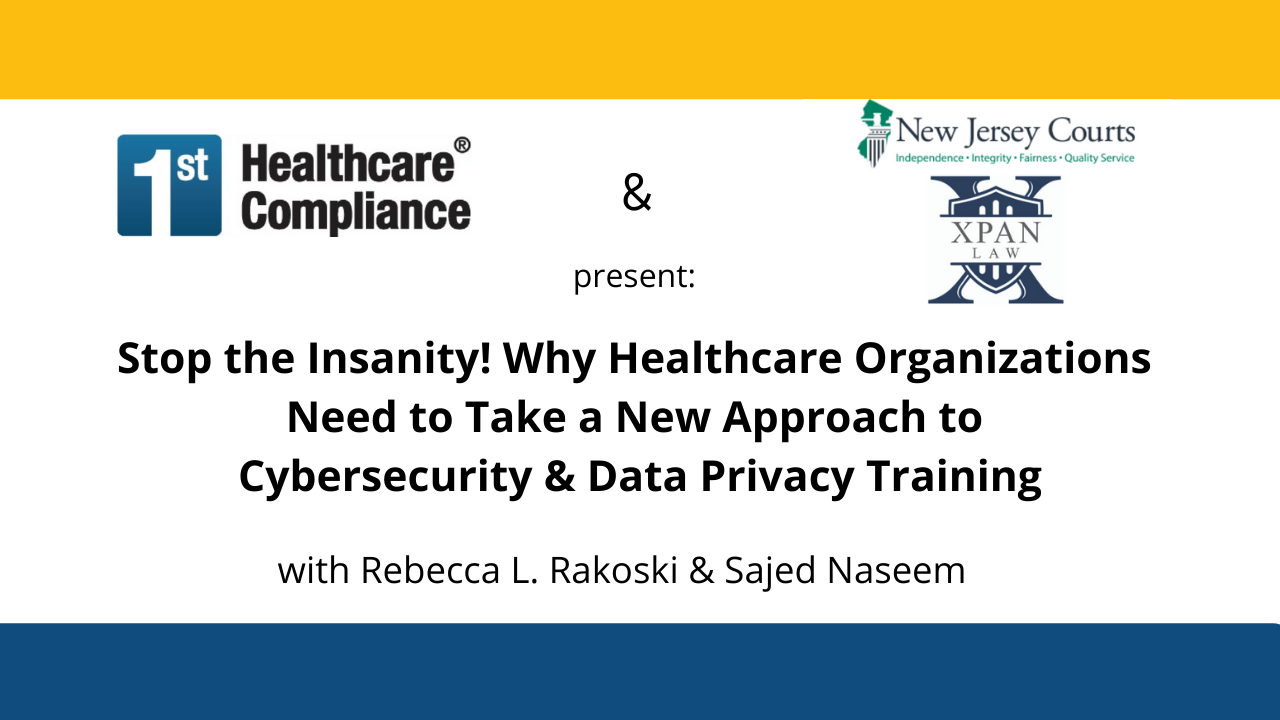
Stop the Insanity! Why Healthcare Organizations Need to Take a New Approach to Cybersecurity & Data Privacy Training
Rebecca L. Rakoski, managing partner at XPAN Law Partners and Sajed Naseem, Chief Information Security Officer (CISO) from NJ Courts is presenting this engaging webinar. Employees are one of an organization's greatest strengths, but also its greatest weaknesses. For years cybersecurity and data privacy advocates have been arguing that training employees is the only way to safeguard the organization. This is especially true in the healthcare arena where HIPAA training is required. However, these same healthcare organizations engage in training for their employees only to stare down the barrel of a data breach caused by one of those trained employees.The question becomes, why do we continue to repeat the same exercise expecting a different outcome?
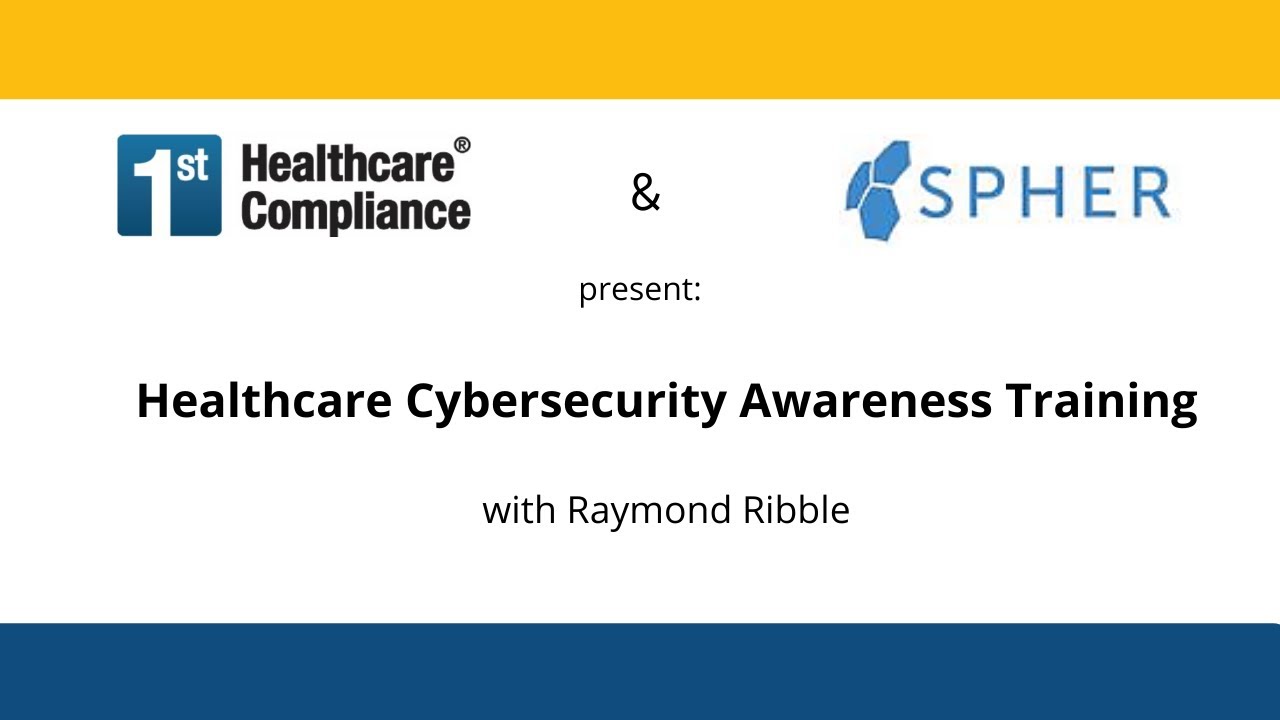
Healthcare Cybersecurity Awareness Training
Raymond Ribble, founder of SPHER, Inc. a leading SaaS-based compliance analytics solution addressing PHI protection and cybersecurity in healthcare, leads this informative webinar. This presentation takes the audience through a series of scenarios and lessons learned that can assist in securing the employee "endpoint" either in the office or at a Home Office. The presentation highlights key security measures a person can deploy to create a better security environment in order to protect their personal and professional documents from unauthorized access.
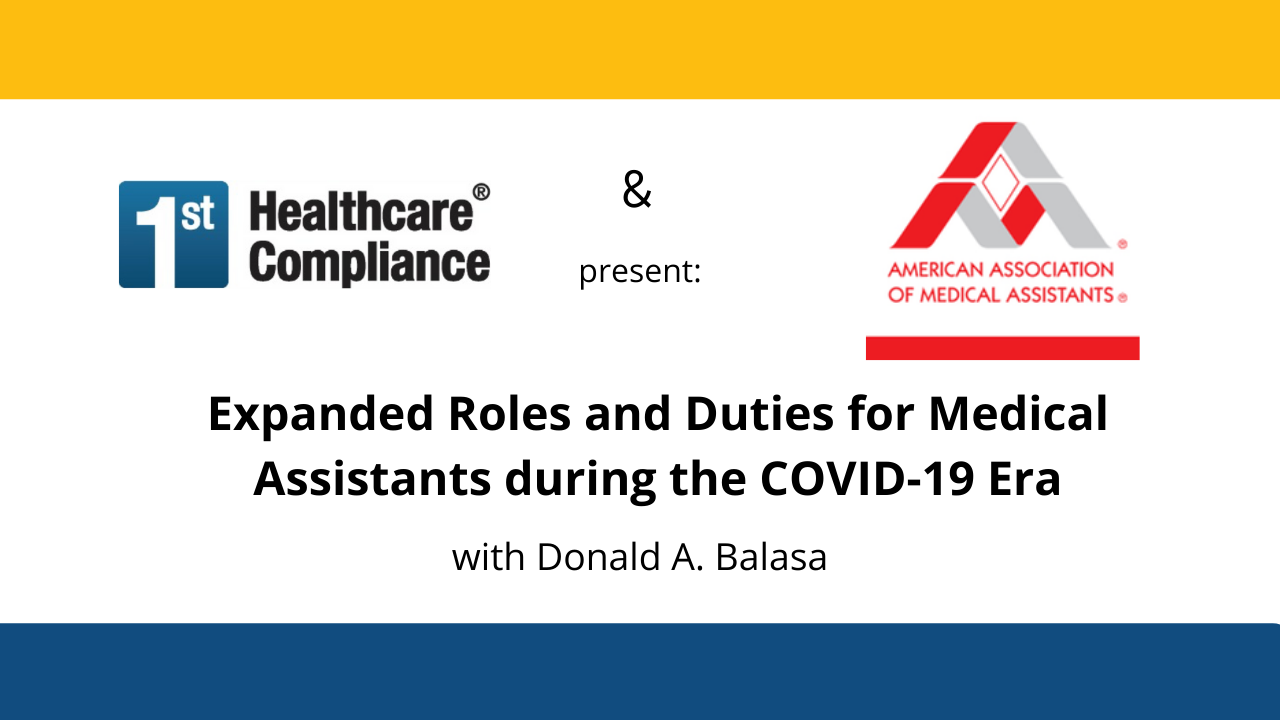
Expanded Roles and Duties for Medical Assistants during the COVID-19 Era
Donald A. Balasa, JD, MBA, Chief Executive Officer and Legal Counsel of the American Association of Medical Assistants (AAMA) leads this timely and informative webinar. The medical assisting profession has risen to the occasion as the United States and the world have been dealing with the most serious health crisis in the last 100 years. Medical assistants have been asked by public health officials, managers of health systems, and licensed providers to assume expanded roles and perform tasks beyond their normal scope of work. Because of the breadth of their education and training, medical assistants have been able to adapt quickly to these new responsibilities. Medical assistants have been called upon to work in nontraditional settings under the authority and supervision of a dedicated array of clinicians and administrators with whom they had not previously practiced (e.g., pharmacists).The purpose of this webinar is to identity the laws that establish the scope of practice for medical assistants, and to delineate the expanded tasks that medical assistants may be delegated under these laws. The legal principles placing limitations on the scope of work for medical assistants will be explained, and the expanded functions that are not delegable to medical assistants will be set forth.
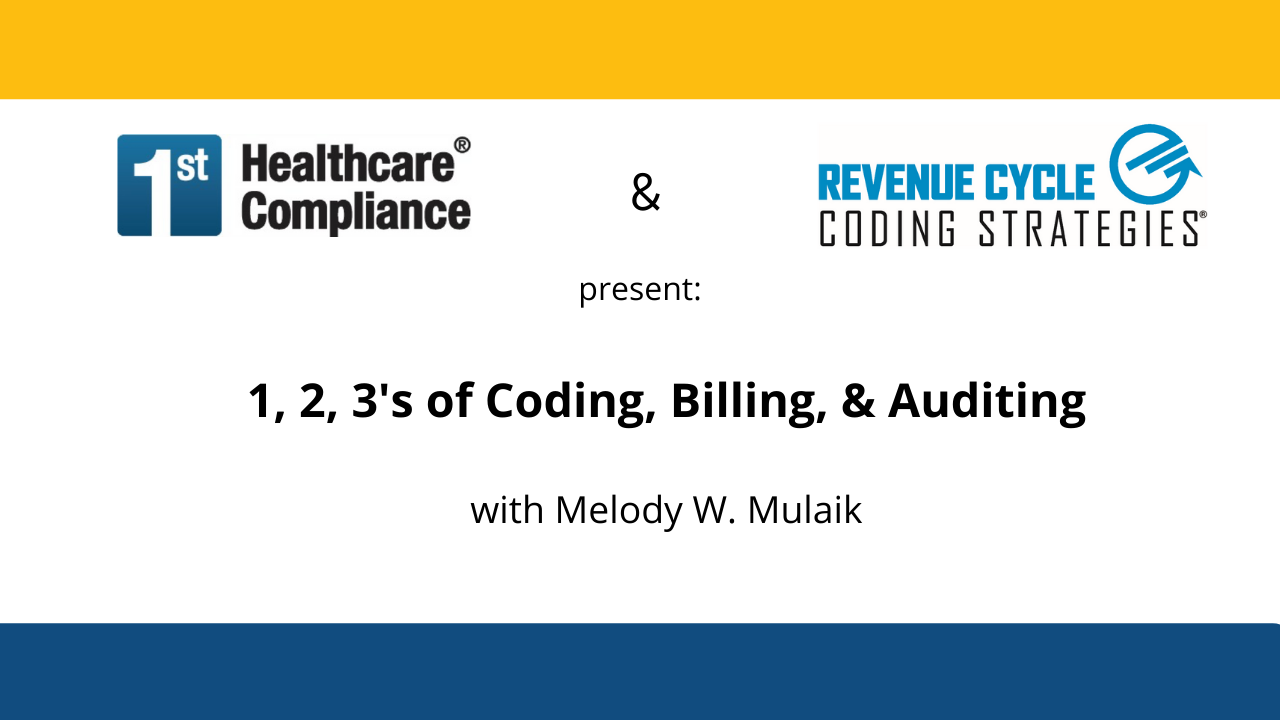
1, 2, 3’s of Coding, Billing & Auditing
Melody W. Mulaik, MSHS, FAHRA, CRA, RCC, RCC-IR, CPC, CPC-H is the President of Revenue Cycle Coding Strategies LLC and our presenter. Every organization needs to ensure correct coding and billing practices to optimize appropriate reimbursement and adhere to payer and CMS guidelines. This session will break down the key areas of concern and provide realistic solutions to efficiently and effective validate current processes and identify areas of potential concern.
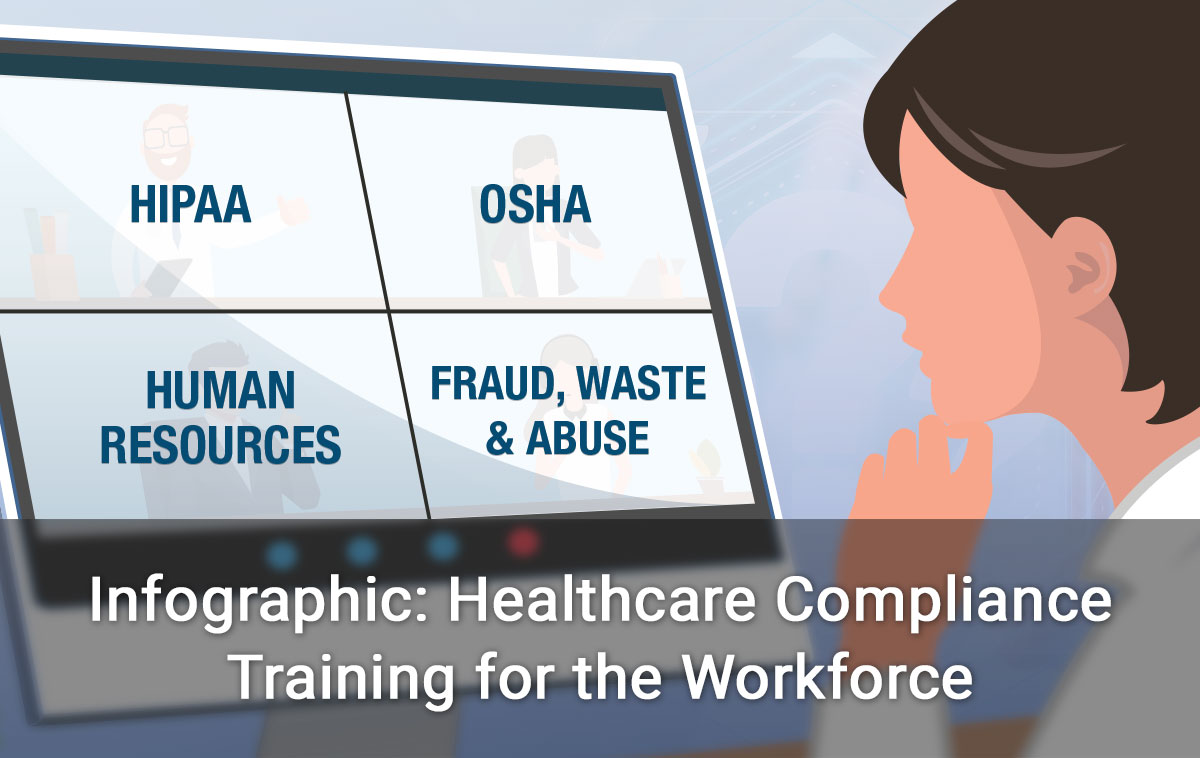
Infographic: Healthcare Compliance Training for the Workforce
Successful employee education is an integral part of a comprehensive healthcare compliance program. Compliance professionals must consider which topics should be offered to the workforce. Of course, proper training depends on variables such as type of healthcare organization, roles of employees and location of the entity. States may impose specific requirements that go beyond federal requirements. Generally, four broad categories cover the topics imperative to the start of a comprehensive healthcare compliance program.
